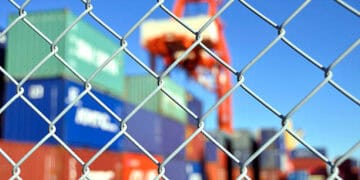The Global Conference on Cooperation in Enforcement Matters in New Delhi, Union Finance Minister Nirmala Sitharaman underscored the importance of utilizing technology and sharing actionable intelligence among customs departments worldwide to curb illegal trade. Sitharaman emphasized the growing necessity for international collaboration in dismantling smuggling networks and apprehending their leaders.
With the increase in global trade, Sitharaman noted the expanding scope and complexity of smuggling activities. She proposed that the World Customs Organization (WCO) should facilitate the development of a basic global framework of laws and procedures, particularly in a technology-driven age, to ensure these are coherent and not contradictory. WCO Secretary-General Kunio Mikuriya, present at the event, shared these views.
The Union Finance Minister highlighted the dual role of customs departments in both fostering international trade and preventing illegal activities. She stressed the significance of strategies to deter smuggling, particularly those threatening wildlife.
Sanjay Kumar Agarwal, Chairman of the Central Board of Indirect Taxes and Customs (CBIC), pointed out the steady growth in international trade, with the value of goods trade reaching about $25 trillion in 2022 and services trade valued at approximately $7 trillion. He brought attention to the rising potential for illegal trade in restricted items like antiques, gold, and endangered species, alongside the persistent issue of drug trafficking, estimated to be worth $650 billion.
Revenue Secretary Sanjay Malhotra addressed the challenges faced by enforcement agencies due to the evolving digital world, which blurs national boundaries. He identified smuggling as a complex issue impacting national economies and security. Malhotra called for improved collaboration and coordination among various agencies and countries to combat these cross-border crimes effectively.
Agarwal also noted the increasing sophistication of smugglers who exploit global supply chains and technology to evade detection. He mentioned the complexities added by e-commerce and the use of crypto assets in cross-border transactions, necessitating stronger enforcement and international cooperation.
The Indian Customs administration is implementing a risk-based approach to process customs declarations and mitigate associated risks, maintaining a balance between enforcement and facilitation. This approach includes leveraging advanced technologies like Big Data Analytics, Artificial Intelligence, Image Analytics, Natural Language Understanding, Network Analytics, and Open-Source Intelligence. For instance, Indian Customs is implementing AI-based image analytics for centralized and automated risk detection in container scanning.
The government has initiated Operation Shesha-IV, led by the Indian Customs and the Department of Revenue Intelligence (DRI), to combat the smuggling of timber, particularly red sanders. This initiative, first launched in 2015 in collaboration with the Hong Kong Customs, is named after the Seshachalam forest, the natural habitat of the Red Sanders species. Previous editions of the operation took place in 2015, 2017, and 2019, demonstrating ongoing commitment to this cause.
Stay current with supply chain report news at The Supply Chain Report. For international trade resources, visit ADAMftd.com.
#GlobalCooperation #SmugglingPrevention #CustomsDepartments #InternationalTrade #TechForTrade #WildlifeProtection #WCO #CustomsCollaboration #DigitalEnforcement #BigDataInCustoms #AIForCustoms #OperationSheshaIV #CrossBorderCrime #SmugglingNetworks #TradeSecurity #CustomsTechnology #SupplyChainSecurity #CryptoInSmuggling #CustomsRiskManagement














